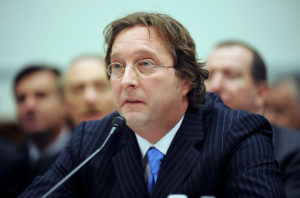
Masterworks by Pablo Picasso and Andy Warhol were among the swag sold by infamous hedge fund operator Philip Falcone that prompted a New York Judge to freeze his assets, according to a recent report in Financial Times.
Falcone, who was supported in his career rise as a fund manager for Birmingham-based Harbert Management Corp., is being ordered to pay $13.6 million in legal fees to a New York law firm that represented him in a case that led to a $18 million settlement with the Securities Exchange Commission, in 2013, over alleged mishandling of hedge fund assets.
Falcone and Harbert Management both made a windfall in 2008 with investments, through Harbinger Capital Partners, that predicted the collapse of the mortgage housing industry. Harbinger was owned by Harbert at the time and managed by Falcone, who soon after took ownership of the fund and became a rock star of the financial media, moving into a $49 million mansion once owned by Penthouse magazine publisher Bob Guccione.
Falcone’s fortunes since then sharply declined, leaving him fighting off creditors, including the New York law firm Dontzin Nagy & Fleissig, whom Falcone claims overcharged him for work leading to the 2013 SEC settlement. A state arbitrator did not agree with Falcone and directed him to pay up. The New York judge affirmed that view in freezing Falcone’s assets.
Falcone’s fortunes began tumbling with a disastrous investment in the wireless internet company LightSquared, which filed for bankruptcy in 2012. The following year, the SEC charged that Falcone gave preferential treatment to several big investors and borrowed $113 million from his hedge fund to pay personal taxes.
Failure to pay income taxes from the hedge fund from its profits from 2004 through 2009, when Harbert owned the fund, led to a 2017, $40 million settlement by Harbert with the attorney general of New York.
AG Eric Schneiderman said the lawsuit — filed under seal in 2015 by an unnamed whistleblower — was the largest recovery of its kind. He also said the potential for abuse by others was great if they did as Harbert and shifted their tax liability to another location — in Harbert’s case, to Alabama, which has a much lower income tax rate.



